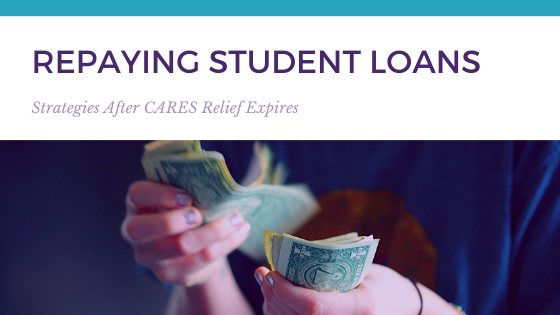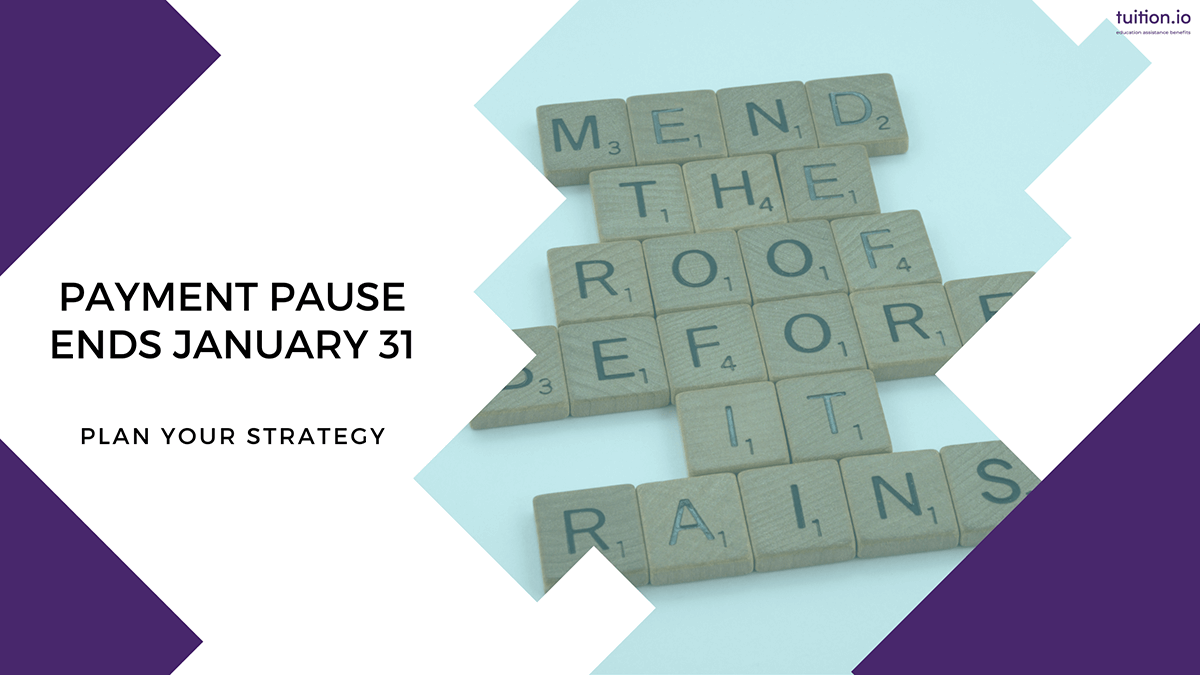How Extended Student Loan Relief Impacts Your Goals
The temporary student loan relief included in the CARES Act has been extended through the end of the year. An executive order signed August 8th...

Please note an executive order signed 08/08/2020 continues the student loan relief through 12/31/2020. This article has been updated to reflect the new expiration date of specific relief measures.
The CARES Act offers temporary student loan relief for millions of federal student loan borrowers. An executive order signed 8/8/20 extends the relief through the end of the year. Today’s post is all about finding the best repayment strategy after the CARES Act student loan relief expires. If you need the lowest monthly payment, are pursuing forgiveness, or want to pay your loans off ASAP we discuss the options.
Need a quick refresher on the CARES Act temporary student loan relief?
Take Full Advantage of the CARES Act Student Loan Relief
CARES Act Help for Student Loan Default
The coronavirus has resulted in unprecedented job loss and taken a huge toll on personal finances. Plan ahead to avoid last minute stress. You can choose a repayment plan that will have low payments when CARES expires. If you’ve lost your income; your payment can be as low as $0 per month under an income driven repayment plan.
The income-driven repayment plans and extended repayment plan tend to have the lowest payments. The trade off for a low payment is that it takes longer to repay your student loans so you pay more interest over the life of the loan.
The most important thing to do when pursuing loan forgiveness is to stay on track. You’ll need to resume making eligible payments once the executive order expires 12/31/20. You’ll make payments based on income if you’re pursuing Public Service Loan Forgiveness (PSLF) or Income-Driven Loan Forgiveness. Any repayment plan is eligible for Teacher Loan Forgiveness so choose the one that fits your needs.
Refinancing federal loans after the 0% interest expires can be a good choice if your income hasn’t been significantly impacted, you’re not pursing loan forgiveness, and you want to repay your loans fast. Remember that interest rates are 0% for all federal loans owned by the Department of Education so Refinancing before January 1st 2020 doesn’t make sense, you can’t beat 0%. If you’re unsure about your income, consider making extra payments instead of refinancing to keep federal benefits like income-driven repayment options.
Refinancing private loans could make sense at any time. Private student loans don’t carry the same borrower protections as federal loans so there is little to lose.

The temporary student loan relief included in the CARES Act has been extended through the end of the year. An executive order signed August 8th...

*This post has been updated to reflect the temporary relief extension until 6/30/2023.

Updated to reflect extension of relief through January 31st, 2022. This article is a quick reminder of the temporary relief initiatives and how you...